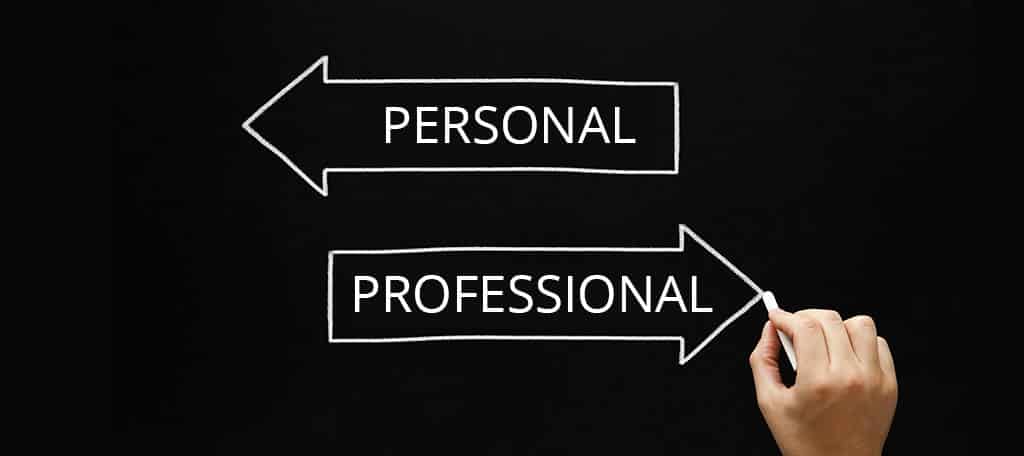
The WHOIS database is essentially a collection of information, such as your name and email address, that registrars publish once you purchase a domain. It’s used as contact information much like a traditional phone book.
As you can guess, a great deal of complications can come from this information remaining in public access. Luckily, most registrars allow you to “purchase” privacy controls when you buy a domain.
This removes that information from public view and keeps your contact info private.
Not everyone understands the value of keeping website ownership hidden from view. However, it can play a part in a variety of situations.
For many people, the extra fee per year is far worth the peace of mind they get knowing that their information is kept private.
Below are some of the reasons why you would want to utilize privacy on your domain. This doesn’t mean you absolutely should hide your information, but it helps cut out a lot of issues later on.
Why Should You Use Privacy Controls on Domains?

1. Reducing Spam
When your name and contact information is visible in a WHOIS search, you are opening yourself to a great deal of spam. Many marketers will use this information to develop lists to sell to virtually any organization looking to mass email information.
This allows marketers to develop niche mailing lists to sell for their own gains while subjecting you to unsolicited messages.
Spam could also include email from those attempting to earn your business. Website designers, other website owners and other “deals” could easily begin to flood your inbox.
Even though some of these are legitimate companies just looking for leads of their own, you may become inundated with these kinds of offers.
Registrations scams, fake alerts and more can also become problematic if your information is made available to the public.
2. Reducing Identity Theft
Not all identity thieves are looking to score your credit card information. Many will use your information to try to gain control of your site, create accounts in your name or otherwise spread digital mayhem.
WHOIS privacy reduces the risks of losing your identity to those who have malicious intent.
3. Personal Views vs. Professional Information

Many people will use privacy settings in order to keep their professional and personal lifestyles separate.
For example: Let’s say that you said something utterly controversial in social media channels. Without WHOIS privacy hiding your identity, your website could be linked to that comment by your name.
Some people may even go out of their way to dig up every bit of information on you as a person because they simply disagree with you on a blog post. Hiding your true identity helps keep your professional and personal life separated.
4. Control of Contact Information
From a professional perspective, using a private domain helps re-enforce visitors to use specific contact information.
Instead of using your private phone, email or address to inquire about professional services, these individuals will need to use the information you provide on the website. This gives you superior control when it comes to the correct contact information for the business site or professional blog.
The last thing you want is for someone to call your number and try and order a product your business sells at two in the morning when you’re trying to sleep.
5. Hiding Your Physical Location

Not everyone needs to know your physical location. Perhaps you operate an eCommerce site out of your home or started a blog that becomes extremely popular. You really don’t want people showing up at your house directly.
For whatever reason, adding privacy to your domain removes your physical location from public view.
6. Hiding Website Ownership or Designing Party
Not all registered users are directly tied to the website in question. It’s a common enough practice where designers and site hosting providers register the domain for clients.
For whatever reason, some clients would rather not have their personal information tied to the site. Instead of showing the designer’s information, which may have nothing to do with the topic of the website itself, some will opt to use WHOIS privacy settings.
7. It’s Inexpensive
Keeping your information out of public view isn’t all that expensive in the grand scheme of things. For most registrars, it may be less than $10 per year. That’s less than a dollar per month to reduce spam, scams and negative feedback regarding your material.
Learn about GreenGeeks ID Protect now and sign up today for this essential service.
It’s a Digital Jungle Out There; Keep Your Information Secure
As the Internet continues to grow and more people access websites, the risks to personal information continue to grow. Although you may believe your site is too small to get any real attention, it may be only a matter of time before your inbox becomes flooded with unsolicited messages and threats.
Never assume that your site is too insignificant to be noticed, even if you just purchased the domain yesterday. Bots which scour the Internet for personal information don’t care how much traffic you get.

Fundamentally, paying for WHOIS privacy is a scam cooked up by the web hosting companies. Effectively they are expecting customers to pay a recurring annual fee for a checkbox to be ticked.
I have raised this with the Information Commissioner as a prime example of insecurity being designed into a system by greedy internet service companies.
Do we have to pay to not be included in the Phone Book or Yellow Pages?
Charging for NOT doing something is extortion, and if those in Government responsible for internet and cyber security had half a brain, it would be treated as such.
Privacy should be a right, by default — not a paid-for add-on. This is the only way that internet crimes like ID theft, phishing and email scams will be effectively addressed.
Hello Asterion,
This is not true, these costs are passed down to us. ICANN has specific requirements for domain name information. Certain TLD’s, such as .CA have whois opt-out and is available free of charge.
I hope this provides some clarification on the domain WHOIS privacy.
this article is very useful